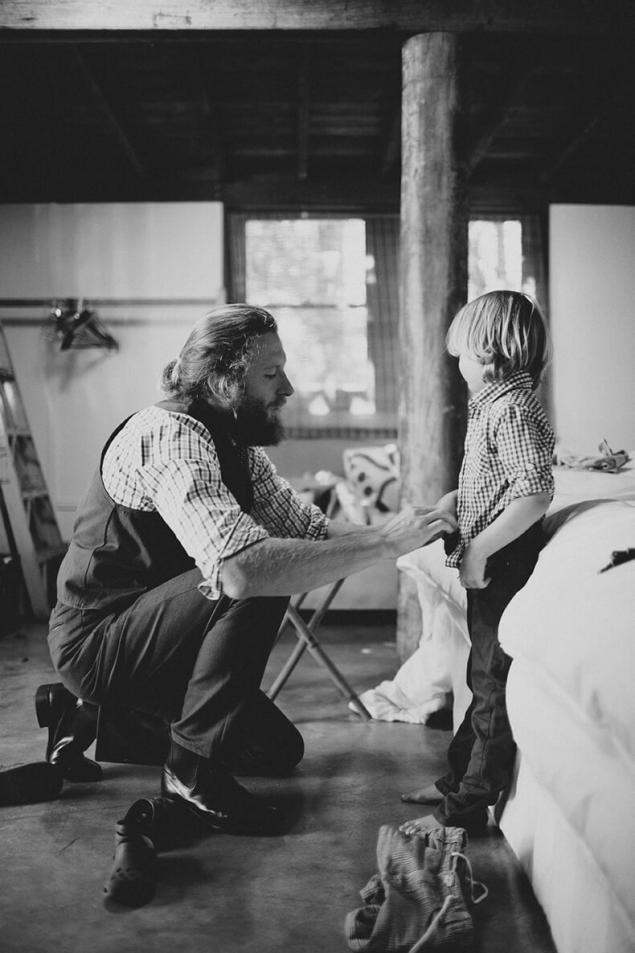1064
8 Triad of relationships in the family Choose yours.
A special place in total biology and family relations are the so-called triads. It is a specific relationship between mother, father and child. And it doesn’t matter how many children there are in the family, because each of them has a different relationship with their parents.
Rickol Heeling has 8 triads. Belonging to a particular triad to a greater extent determines some of our behavior and propensity for certain diseases.

How well we communicate with our mother and father, or with both parents, and whether there is good communication and understanding between Mother and Father, can greatly affect our future lives, the choices we make in terms of our partners and friends.
At a later age, we marry on our conflict or on its resolution. This is obvious because most of our behaviors, strategies, and inclinations are formed in early childhood. During the same period, certain propensities for diseases are also recorded.
Depending on what gender we are, we have different tendencies. It will be very good if you discover what triad we belong to, in order to redirect into our consciousness what has hitherto been in an unconscious state and hinders recovery.
Triad #1: The father is not in contact, the mother is not in contact, the child feels alone.
Triad #2 – Everyone is very closely related.
Triad #3 – The mother is isolated, the father is strongly connected to the child.
Triad #4 – The child communicates with the mother, the mother and the child do not communicate with the father.
Triad #5 – Parents communicate well, the child does not communicate with either the mother or the father.
Triad #6 – The Father wants to leave the Mother, the Child communicates with the Mother and the Father.
Triad #7 – The child communicates only with the Father, the Father communicates with the Mother.
Triad #8 – The child communicates exclusively with the mother, the mother communicates with the father.
What triad do you belong to? After all, this is a very important moment that plays a huge role in our lives and the lives of our loved ones.
In order to more accurately determine which triad of family relationships you belong to, we suggest you answer 25 questions.
TRIAD PARTICLE
What is your number in order of birth?
Have you adopted the dark spot of any of your siblings?
Have your siblings adopted your dark spot?
Talk about relationships with your parents and relatives.
Was your father with you in your early years?
Did he travel?
Did he sleep outside?
Was your mother there for you in your early years?
Describe the relationship between your parents:
What was the connection between them?
Was there a rivalry between them?
Did they trust each other?
Describe the relationship between you and your mother
Did your mother have freedom?
Was she conservative?
Was she jealous?
Did she give more weight to the opinions of others than her own?
Describe your relationship with your father.
Did he have freedom?
Was he conservative?
Was he jealous?
Did he give more weight to the opinions of others than to his own?
Has anyone else played an important role in your development?
Was your grandparent present in your life? (Frequency)
Did you have a nanny? (The importance of this person in life?)
It is worth analyzing in detail the relationship in the family:
- look at parents, brothers, sisters, grandfathers, grandmothers, relatives;
Get to know family stories,
- learn about family secrets.
This will help to find the causes of problems and diseases. And if we find them, there will be an opportunity to forgive and part with them, that is, to go the path of healing.
Triad 1
The mother has no contact with the child.
The father has no contact with the child.
The child feels emotionally lonely.
Each of the three is looking in a different direction.
As a result of upbringing in such a triad there will be a person who does not communicate, he cannot say no, is not able to defend his values, always wants to please everyone.
Triad 1 can mean “Impossibility to create a family nest”, you can program breast cancer, endometriosis (conflict: “My house is elsewhere”), problems with creating a home hearth, feeling lonely being in a couple, inability to emotionally engage, mononucleosis (conflict “I feel alone in my family”), problems associated with platelets.
Other symptoms that may be (but not necessarily!) in the preceding recollection of life from childhood Triad #1 are:
adrenal disease (conflict: "I am isolated from my herd")
High cholesterol (conflict: “I can only count on myself”)
herpes lips (conflict of lack of kissing)
Periodontitis (conflict: No matter what I say, I don’t feel heard)
problems with the temporomandibular joint of the lower jaw (conflict is associated with the inability to deny the words of another person).
Lack of contact can also be expressed through skin diseases:
eczema (separation conflict)
Psoriasis (Double Separation Conflict)
If this triangle is repeated for four generations, it can lead to autism in subsequent generations.
Due to the stress of wanting to communicate with everyone at any cost and not fulfilling this desire, a child may develop different levels of psychic communication and special sensitivity.
Triad 2
This triad is the opposite of Triad No. 1.
The child is closely related to mother and father
Mother closely related to father
The ties between each family member are very strong.
This triad can function for itself. Sometimes it even seems that its members do not need anything from the outside world. For example, they have their own animals, garden, there is no need for a cottage, but this causes a number of problems. The family is a united fortress that fights against the rest of the world.
This leads to a lack of trust, suspicion. The result is paranoia.
Such a triad may have the following biological reflections:
Diabetes mellitus, if there are paranoid states preceding otmu.
High cholesterol: “I have to count on myself.”
High triglyceride levels: "I constantly need the help of family members to survive" => "I cannot be independent" (a rather frequent conflict among Jehovah's Witnesses).
The appearance of an extra chromosome 21, which leads to Down’s disease, because the atmosphere that reigns within such a Triad leaves no room for the outside world (does not allow the world to influence the family). After all, a child, in order to fully develop, needs to interact with the world also outside the family. Solution? - Down syndrome.
Triad 3
The mother feels isolated.
The father has an affair with the child.
This is a fairly common situation when after a divorce, the child remains with the father and contact with the mother is severed. The mother becomes consciously or subconsciously humiliated, vilified, will not be taken into account.
Whether the child is female
The child switches to the tomboy in order not to be tarnished in the eyes of the father and become a partner for him. All aspects of femininity are in conflict on a biological level. Could be:
periodism
cycle
PMS
lack of menstruation or very small discharge.
It seems that every manifestation of femininity is a threat, so the daughter on a biological level suppresses these qualities. May have, for example, very small breasts (fear to show the attribute of femininity), increased hairiness (which makes it more masculine), male body structure. It can also manifest at the hormonal level as breast cancer.
A negative image of the mother, female representation, can make the daughter feel a lack of self-confidence in relation to her body, a conflict of aesthetics. And the lack of communication between the mother and the child can cause the development of anorexia, a problem with determining one’s own femininity, hemorrhoids (the inability to determine one’s own identity).
If a male child
He will reject femininity from both the outside and the manifestation of this aspect in himself. The son will humiliate women and neglect them, treat women as an instrument for multiplying his victories (conquests).
This triad programs the emergence of sexually transmitted diseases in order to express the “dirty” of women. Son and father subconsciously form a pair of homosexuals. The son is the second male and is not eligible for fertilization, so this program is also a program of infertility and premature ejaculation.

Triad 4
The child communicates only with the mother.
The child does not communicate with the father.
The father does not communicate with his mother, he is isolated.
If the child is a boy:
Absence of a father: the father is absent or far away. The boy will be lonely, may have difficulties as a father.
The boy will be infantile:
intellectually and materially he will be attracted by the professions associated with drawing: draftsman, cartoonist, architect ...
sexually: it will be difficult for him to establish normal relationships, there is infertility.
Emotionally, he will remain his mother’s child – a subconscious incestuous bond with the mother who pressures him.
If he marries, his mother will be an enemy of his wife, which can contribute to territorial conflict and lung disease.
If the child is a girl:
She is paired with her mother (unconscious homosexuality).
She is an "extension" of her mother and cannot achieve her personal femininity; cases of hemorrhoids that cause conflict "cannot be herself in her femininity."
As an adult, she will look for an obedient man who will not be able to destroy the mother/daughter pair.
This man will always be "understated": she won't have an orgasm with him, as her mother subconsciously forbids her to have "adult sexuality."
Problems related to Triad 4 (Girl and Boy):
Breast compression: the consequence of lack of a sense of protection (Father) and family emptiness. A child may seek a symbolic father (teacher, guru, sect, etc.)
Enuresis: The father gives a name and gives a no to the child, it also sets limits.
Without restrictions, the child is unable to distinguish between inside and outside his body, which affects the control of the sphincter, the biological symbols of the limitations of the body (boundary).
Leukemia: associated with protection and a sense of security.
Hodgkin's disease (lymphogranulomatosis): A father symbolizing protection.
Its absence affects the defense mechanism in the body.
Triad 5
The child does not communicate with the mother or father.
Mother and father communicate well with each other.
Triad 5 is abandoning the baby.
Parents are infantile, which is terrible for a child:
The father does not exhibit parental behavior. The result may be a mentor search, enuresis, lack of protection, chest compression, loss of intellectual value.
The mother does not show maternal behavior, which can lead to negative identification as a woman (1), disgust for her body (2), and anorexia. It's a double alienation programming psoriasis. In Triad 5, a child has two possibilities.
First opportunity:
A child can be raised by grandparents.
The Oedipus/Electra complex may be associated with an older relative.
When a couple has a big age difference, we usually find in the family tree that one of the children was raised by grandparents.
Consequence: The conflict “my home somewhere else” can program endometriosis or a desire to avoid a relationship.
Second possibility:
The child grows up early and becomes responsible.
His childhood and youth are stolen, so he can try to restore it to adulthood through games: he can be attracted to casinos, computer games, etc.
This "loneliness" program can form mononucleosis: "I feel lonely in my family."
The child has no place: a program of inability to mark the territory, which leads to urethra infections and/or ectopic pregnancy (“There is no place for me in my house”).
The child may experience feelings of alienation and rejection.
Because of their parents’ self-centered and infantile couple, the child feels abandoned, so they will later have difficulty being a parent, which programming, “I don’t want a child,” can make them infertile.
Triad 5 creates a mental pattern:
Two children play together, all is well, but when the third child arrives, the loss of balance is 2 versus 1. This pattern will repeat later when the child becomes a parent: “This child is bothering me.” Immediately after the birth of the child begins postpartum depression.

Triad 6
Mother and father want a divorce.
The child communicates with both father and mother.
The couple wants a divorce, but in the family tree we don't divorce when we have a child. The consequence: the child will be a bridge between the parents, a bond between them.
Parents stay together because of the baby.
Subconsciously, the child feels guilty and can form the next one.
I can't make anyone happy because I make my parents miserable. I don’t know how to make people happy!
“I only know how to bring problems and unhappiness. It's all my fault! This child experiences a huge sense of guilt: he will be constantly angry with his parents.
The lack of understanding between parents is huge, and it is the child who holds them together.
This type of situation can program the following situation: one parent uses the child to hold the other. The child is torn apart: he will become indecisive when he has time to make a choice; absolute duality.
This kind of “schizophrenic structure” can be reinforced if the parents have different religions and/or backgrounds (country of origin, race, etc.).
A child in Triad 6 may later become a "negotiator": diplomat, teacher, etc.
If the father wants to leave the child, he will be both a father and a mother; if the mother wants to leave the child, she will be both a father and a mother: in the Oedipus/Electra stage, the child experiences a double identification: the attraction of a double life to fit both hemispheres of the brain.
In particularly serious cases, Triad 6 can form bisexuality.
The deep subconscious of the couple does not contribute to the well-being of the child, but to its complete destruction. The child will have a death program leading to depression, an important conflict of feeling worthless, and may even have thoughts of suicide in childhood.
The child is held hostage, experiencing shoulder pain (biceps area).
The child is a constant victim, leading to skin diseases such as psoriasis and eczema.
They may have difficulty forming relationships.
Triad 7
The child communicates with the father.
The father communicates with his mother.
The child does not communicate with the mother.
The father is the central link and is very important, leading to the idealization of the father.
If the child is a boy:
He sees his father beautiful, strong.
In triad 7, the father forbids the child to be equal or better than he is, which forms low self-esteem.
In fact, the father is jealous of his son and is with him in constant confrontation, enmity.
When a son grows up, he will repeat this pattern with another man.
The father cuts the child off from the relationship with the mother, creating an unconscious homosexual bond.
As if a father forbids his son to be sexual (which creates infertility and/or premature ejaculation).
Prohibited access to the mother can lead to impotence, sexual impotence.
If the child is a girl:
The father views the daughter as a bride, forming a mother/daughter feud. In this case, the mother will behave like an alpha female. Her daughter will be under her domination.
Alpha is the only female who can continue the lineage. If a daughter is pregnant, she must get rid of the baby through abortion or miscarriage. A mother creates a death program for her child because only she can create life.

Triad 8
The child communicates with the mother
Mother communicates with father.
The father does not communicate with the child.
The mother is the link.
The child must pass through it to gain access to the father, which creates an idealization of the mother.
If the child is a boy:
He hates his father because he is his mother’s favorite partner. A child may experience many sexual problems, as if he had no father. It needs to show parental qualities.
If the child is a girl:
Access to men is restricted because of the mother. Sexual power is one of the most powerful on the planet: during puberty, it will want to interact with men of its own age, but it is forbidden.
The only non-prohibited contact is rape.
Triads 7 and 8 form a pair of three.
Wife, husband, lover.
Husband, wife, mistress.
Some conflicts that occur in people raised in family relationships triad No. 8:
Why do I always attract people who depend on me? - Fear of being abandoned!
Why do I constantly run into parasitic people (people who want to use me)? Because in the subconscious, I want people to desire my existence and I never want to be abandoned.
What can be done to avoid conflict with what is visible? - Keyword: adaptation!
Key phrase for myocardial infarction: We need to share. It could be a simple word, “a word of love I can’t share.”
Rickol Heeling has 8 triads. Belonging to a particular triad to a greater extent determines some of our behavior and propensity for certain diseases.

How well we communicate with our mother and father, or with both parents, and whether there is good communication and understanding between Mother and Father, can greatly affect our future lives, the choices we make in terms of our partners and friends.
At a later age, we marry on our conflict or on its resolution. This is obvious because most of our behaviors, strategies, and inclinations are formed in early childhood. During the same period, certain propensities for diseases are also recorded.
Depending on what gender we are, we have different tendencies. It will be very good if you discover what triad we belong to, in order to redirect into our consciousness what has hitherto been in an unconscious state and hinders recovery.
Triad #1: The father is not in contact, the mother is not in contact, the child feels alone.
Triad #2 – Everyone is very closely related.
Triad #3 – The mother is isolated, the father is strongly connected to the child.
Triad #4 – The child communicates with the mother, the mother and the child do not communicate with the father.
Triad #5 – Parents communicate well, the child does not communicate with either the mother or the father.
Triad #6 – The Father wants to leave the Mother, the Child communicates with the Mother and the Father.
Triad #7 – The child communicates only with the Father, the Father communicates with the Mother.
Triad #8 – The child communicates exclusively with the mother, the mother communicates with the father.
What triad do you belong to? After all, this is a very important moment that plays a huge role in our lives and the lives of our loved ones.
In order to more accurately determine which triad of family relationships you belong to, we suggest you answer 25 questions.
TRIAD PARTICLE
What is your number in order of birth?
Have you adopted the dark spot of any of your siblings?
Have your siblings adopted your dark spot?
Talk about relationships with your parents and relatives.
Was your father with you in your early years?
Did he travel?
Did he sleep outside?
Was your mother there for you in your early years?
Describe the relationship between your parents:
What was the connection between them?
Was there a rivalry between them?
Did they trust each other?
Describe the relationship between you and your mother
Did your mother have freedom?
Was she conservative?
Was she jealous?
Did she give more weight to the opinions of others than her own?
Describe your relationship with your father.
Did he have freedom?
Was he conservative?
Was he jealous?
Did he give more weight to the opinions of others than to his own?
Has anyone else played an important role in your development?
Was your grandparent present in your life? (Frequency)
Did you have a nanny? (The importance of this person in life?)
It is worth analyzing in detail the relationship in the family:
- look at parents, brothers, sisters, grandfathers, grandmothers, relatives;
Get to know family stories,
- learn about family secrets.
This will help to find the causes of problems and diseases. And if we find them, there will be an opportunity to forgive and part with them, that is, to go the path of healing.
Triad 1
The mother has no contact with the child.
The father has no contact with the child.
The child feels emotionally lonely.
Each of the three is looking in a different direction.
As a result of upbringing in such a triad there will be a person who does not communicate, he cannot say no, is not able to defend his values, always wants to please everyone.
Triad 1 can mean “Impossibility to create a family nest”, you can program breast cancer, endometriosis (conflict: “My house is elsewhere”), problems with creating a home hearth, feeling lonely being in a couple, inability to emotionally engage, mononucleosis (conflict “I feel alone in my family”), problems associated with platelets.
Other symptoms that may be (but not necessarily!) in the preceding recollection of life from childhood Triad #1 are:
adrenal disease (conflict: "I am isolated from my herd")
High cholesterol (conflict: “I can only count on myself”)
herpes lips (conflict of lack of kissing)
Periodontitis (conflict: No matter what I say, I don’t feel heard)
problems with the temporomandibular joint of the lower jaw (conflict is associated with the inability to deny the words of another person).
Lack of contact can also be expressed through skin diseases:
eczema (separation conflict)
Psoriasis (Double Separation Conflict)
If this triangle is repeated for four generations, it can lead to autism in subsequent generations.
Due to the stress of wanting to communicate with everyone at any cost and not fulfilling this desire, a child may develop different levels of psychic communication and special sensitivity.
Triad 2
This triad is the opposite of Triad No. 1.
The child is closely related to mother and father
Mother closely related to father
The ties between each family member are very strong.
This triad can function for itself. Sometimes it even seems that its members do not need anything from the outside world. For example, they have their own animals, garden, there is no need for a cottage, but this causes a number of problems. The family is a united fortress that fights against the rest of the world.
This leads to a lack of trust, suspicion. The result is paranoia.
Such a triad may have the following biological reflections:
Diabetes mellitus, if there are paranoid states preceding otmu.
High cholesterol: “I have to count on myself.”
High triglyceride levels: "I constantly need the help of family members to survive" => "I cannot be independent" (a rather frequent conflict among Jehovah's Witnesses).
The appearance of an extra chromosome 21, which leads to Down’s disease, because the atmosphere that reigns within such a Triad leaves no room for the outside world (does not allow the world to influence the family). After all, a child, in order to fully develop, needs to interact with the world also outside the family. Solution? - Down syndrome.
Triad 3
The mother feels isolated.
The father has an affair with the child.
This is a fairly common situation when after a divorce, the child remains with the father and contact with the mother is severed. The mother becomes consciously or subconsciously humiliated, vilified, will not be taken into account.
Whether the child is female
The child switches to the tomboy in order not to be tarnished in the eyes of the father and become a partner for him. All aspects of femininity are in conflict on a biological level. Could be:
periodism
cycle
PMS
lack of menstruation or very small discharge.
It seems that every manifestation of femininity is a threat, so the daughter on a biological level suppresses these qualities. May have, for example, very small breasts (fear to show the attribute of femininity), increased hairiness (which makes it more masculine), male body structure. It can also manifest at the hormonal level as breast cancer.
A negative image of the mother, female representation, can make the daughter feel a lack of self-confidence in relation to her body, a conflict of aesthetics. And the lack of communication between the mother and the child can cause the development of anorexia, a problem with determining one’s own femininity, hemorrhoids (the inability to determine one’s own identity).
If a male child
He will reject femininity from both the outside and the manifestation of this aspect in himself. The son will humiliate women and neglect them, treat women as an instrument for multiplying his victories (conquests).
This triad programs the emergence of sexually transmitted diseases in order to express the “dirty” of women. Son and father subconsciously form a pair of homosexuals. The son is the second male and is not eligible for fertilization, so this program is also a program of infertility and premature ejaculation.

Triad 4
The child communicates only with the mother.
The child does not communicate with the father.
The father does not communicate with his mother, he is isolated.
If the child is a boy:
Absence of a father: the father is absent or far away. The boy will be lonely, may have difficulties as a father.
The boy will be infantile:
intellectually and materially he will be attracted by the professions associated with drawing: draftsman, cartoonist, architect ...
sexually: it will be difficult for him to establish normal relationships, there is infertility.
Emotionally, he will remain his mother’s child – a subconscious incestuous bond with the mother who pressures him.
If he marries, his mother will be an enemy of his wife, which can contribute to territorial conflict and lung disease.
If the child is a girl:
She is paired with her mother (unconscious homosexuality).
She is an "extension" of her mother and cannot achieve her personal femininity; cases of hemorrhoids that cause conflict "cannot be herself in her femininity."
As an adult, she will look for an obedient man who will not be able to destroy the mother/daughter pair.
This man will always be "understated": she won't have an orgasm with him, as her mother subconsciously forbids her to have "adult sexuality."
Problems related to Triad 4 (Girl and Boy):
Breast compression: the consequence of lack of a sense of protection (Father) and family emptiness. A child may seek a symbolic father (teacher, guru, sect, etc.)
Enuresis: The father gives a name and gives a no to the child, it also sets limits.
Without restrictions, the child is unable to distinguish between inside and outside his body, which affects the control of the sphincter, the biological symbols of the limitations of the body (boundary).
Leukemia: associated with protection and a sense of security.
Hodgkin's disease (lymphogranulomatosis): A father symbolizing protection.
Its absence affects the defense mechanism in the body.
Triad 5
The child does not communicate with the mother or father.
Mother and father communicate well with each other.
Triad 5 is abandoning the baby.
Parents are infantile, which is terrible for a child:
The father does not exhibit parental behavior. The result may be a mentor search, enuresis, lack of protection, chest compression, loss of intellectual value.
The mother does not show maternal behavior, which can lead to negative identification as a woman (1), disgust for her body (2), and anorexia. It's a double alienation programming psoriasis. In Triad 5, a child has two possibilities.
First opportunity:
A child can be raised by grandparents.
The Oedipus/Electra complex may be associated with an older relative.
When a couple has a big age difference, we usually find in the family tree that one of the children was raised by grandparents.
Consequence: The conflict “my home somewhere else” can program endometriosis or a desire to avoid a relationship.
Second possibility:
The child grows up early and becomes responsible.
His childhood and youth are stolen, so he can try to restore it to adulthood through games: he can be attracted to casinos, computer games, etc.
This "loneliness" program can form mononucleosis: "I feel lonely in my family."
The child has no place: a program of inability to mark the territory, which leads to urethra infections and/or ectopic pregnancy (“There is no place for me in my house”).
The child may experience feelings of alienation and rejection.
Because of their parents’ self-centered and infantile couple, the child feels abandoned, so they will later have difficulty being a parent, which programming, “I don’t want a child,” can make them infertile.
Triad 5 creates a mental pattern:
Two children play together, all is well, but when the third child arrives, the loss of balance is 2 versus 1. This pattern will repeat later when the child becomes a parent: “This child is bothering me.” Immediately after the birth of the child begins postpartum depression.

Triad 6
Mother and father want a divorce.
The child communicates with both father and mother.
The couple wants a divorce, but in the family tree we don't divorce when we have a child. The consequence: the child will be a bridge between the parents, a bond between them.
Parents stay together because of the baby.
Subconsciously, the child feels guilty and can form the next one.
I can't make anyone happy because I make my parents miserable. I don’t know how to make people happy!
“I only know how to bring problems and unhappiness. It's all my fault! This child experiences a huge sense of guilt: he will be constantly angry with his parents.
The lack of understanding between parents is huge, and it is the child who holds them together.
This type of situation can program the following situation: one parent uses the child to hold the other. The child is torn apart: he will become indecisive when he has time to make a choice; absolute duality.
This kind of “schizophrenic structure” can be reinforced if the parents have different religions and/or backgrounds (country of origin, race, etc.).
A child in Triad 6 may later become a "negotiator": diplomat, teacher, etc.
If the father wants to leave the child, he will be both a father and a mother; if the mother wants to leave the child, she will be both a father and a mother: in the Oedipus/Electra stage, the child experiences a double identification: the attraction of a double life to fit both hemispheres of the brain.
In particularly serious cases, Triad 6 can form bisexuality.
The deep subconscious of the couple does not contribute to the well-being of the child, but to its complete destruction. The child will have a death program leading to depression, an important conflict of feeling worthless, and may even have thoughts of suicide in childhood.
The child is held hostage, experiencing shoulder pain (biceps area).
The child is a constant victim, leading to skin diseases such as psoriasis and eczema.
They may have difficulty forming relationships.
Triad 7
The child communicates with the father.
The father communicates with his mother.
The child does not communicate with the mother.
The father is the central link and is very important, leading to the idealization of the father.
If the child is a boy:
He sees his father beautiful, strong.
In triad 7, the father forbids the child to be equal or better than he is, which forms low self-esteem.
In fact, the father is jealous of his son and is with him in constant confrontation, enmity.
When a son grows up, he will repeat this pattern with another man.
The father cuts the child off from the relationship with the mother, creating an unconscious homosexual bond.
As if a father forbids his son to be sexual (which creates infertility and/or premature ejaculation).
Prohibited access to the mother can lead to impotence, sexual impotence.
If the child is a girl:
The father views the daughter as a bride, forming a mother/daughter feud. In this case, the mother will behave like an alpha female. Her daughter will be under her domination.
Alpha is the only female who can continue the lineage. If a daughter is pregnant, she must get rid of the baby through abortion or miscarriage. A mother creates a death program for her child because only she can create life.

Triad 8
The child communicates with the mother
Mother communicates with father.
The father does not communicate with the child.
The mother is the link.
The child must pass through it to gain access to the father, which creates an idealization of the mother.
If the child is a boy:
He hates his father because he is his mother’s favorite partner. A child may experience many sexual problems, as if he had no father. It needs to show parental qualities.
If the child is a girl:
Access to men is restricted because of the mother. Sexual power is one of the most powerful on the planet: during puberty, it will want to interact with men of its own age, but it is forbidden.
The only non-prohibited contact is rape.
Triads 7 and 8 form a pair of three.
Wife, husband, lover.
Husband, wife, mistress.
Some conflicts that occur in people raised in family relationships triad No. 8:
Why do I always attract people who depend on me? - Fear of being abandoned!
Why do I constantly run into parasitic people (people who want to use me)? Because in the subconscious, I want people to desire my existence and I never want to be abandoned.
What can be done to avoid conflict with what is visible? - Keyword: adaptation!
Key phrase for myocardial infarction: We need to share. It could be a simple word, “a word of love I can’t share.”























